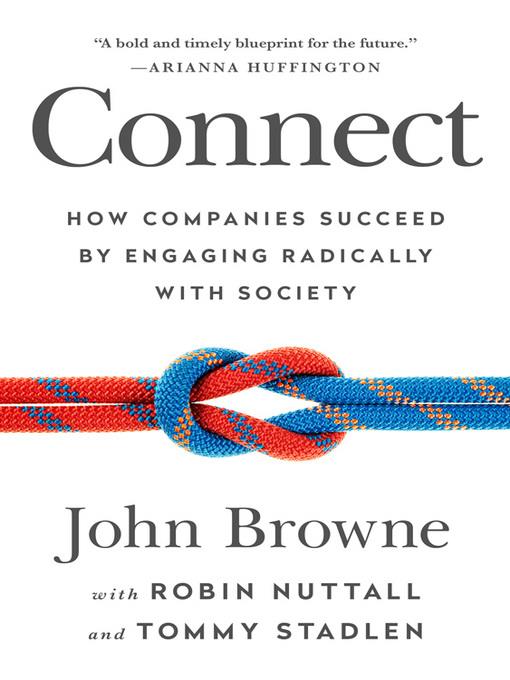
Connect
How Companies Succeed by Engaging Radically with Society
کتاب های مرتبط
- اطلاعات
- نقد و بررسی
- دیدگاه کاربران
نقد و بررسی

January 1, 2016
Former BP chief executive Browne (Seven Elements that Changed the World: An Adventure of Ingenuity and Discovery, 2014, etc.) teams with McKinsey & Company principal Nuttall and former McKinsey consultant Stadlen to call out some systematic failures of businesses, including the failure to learn from the past. The authors interviewed more than 80 corporate leaders from companies around the world, and McKinsey's research and surveys back the work. High on the authors' list is the absence of adequate corporate policies and methods to deal with potentially catastrophic issues involving the communities in which they operate. They prominently flag environmental issues, including climate change in general and specific events like the Deepwater Horizon oil spill. Also significant are corporate corruption, scandals, and criminality. To demonstrate the convenient amnesia of corporate leaders, the authors pair recent developments--Europe's 2013 horsemeat scandal--with historical precedents such as the dreadful conditions of the meatpacking industry in early-20th-century Chicago. Browne believes that the community outreach programs known as Corporate Social Responsibility are ineffective because they are "disconnected from commercial activity and from the needs of real people." What are the actual roles of corporations, ask the authors, "if they are no longer the drivers of employment in their industry or their local community?" Through their interviews, the authors portray a world in the midst of social upheaval and technological revolution; one result has been the large-scale loss of lesser-qualified and unqualified positions. Artificial intelligence technology, robots, and software-driven platforms--e.g., Uber, which is greatly disrupting the taxi industry--are likely here to stay. As the authors rightly note, government still has a role to play. The authors cogently argue that businesses must develop more focused "mapping" of their operations. Clearer, more precise conceptions of aims and purposes are also necessary, and outreach must be more finely honed at every level. A timely and provocative discussion of big business and its uncertain future.
COPYRIGHT(2016) Kirkus Reviews, ALL RIGHTS RESERVED.

February 1, 2016
Browne, the former chief executive of BP, with Robin Nuttall and Tommy Stadlen, two McKinsey & Company experts, has written an insightful book seeking to reconcile business conflicts with their various environments. Browne incorporates business history and his own experiences and recollections of business life with the research efforts of McKinsey & Company, one of the most widely respected management and business consulting firms in the world. He questions the concept of corporate social responsibility, recommending instead new ways for companies to interact with the world around them. That interaction he feels should include myriad factors dependent on the circumstances in which the firm and society are intertwined. Browne believes that shareholder value must always be a major consideration and the ways in which the firm relates to the environment, not just immediately but through its entire chain of activity, is important. VERDICT This book should be read widely and considered by both those working in business and those who follow business as it proposes new avenues in which all sides evaluate their contributions to society and determine their value.--Littleton Maxwell, Robins Sch. of Business, Univ. of Richmond
Copyright 2016 Library Journal, LLC Used with permission.

























دیدگاه کاربران